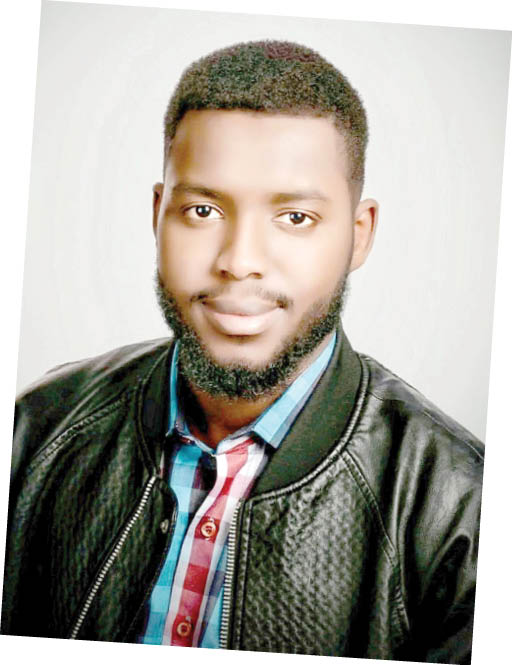Why we started ‘Kano Afforestation Drive’ – Hashim
Dahir Muhammad Hashim, 28, an Egypt-trained medical Doctor from Kano, is the founder and pioneer chairman of Panacea Foundation, a Non-Governmental Organisation which focuses on tree planting and ensuring sustainability through environmental awareness and advocacy. In this interview, he speaks about the need to have a sustainable green environment, among other issues. Why did you […]

Dahir Muhammad Hashim
Dahir Muhammad Hashim, 28, an Egypt-trained medical Doctor from Kano, is the founder and pioneer chairman of Panacea Foundation, a Non-Governmental Organisation which focuses on tree planting and ensuring sustainability through environmental awareness and advocacy. In this interview, he speaks about the need to have a sustainable green environment, among other issues.
Why did you start the Panacea Foundation?
Everybody can see how the earth is rapidly changing, the earth’s warming effect is a direct consequence of actions from industrial fossils and over-exploitation of natural resources, which have all resulted in endangering our planet. As leaders continue to ignore the existential threat of climate change, we realize the need to act and protect our planet.
Statistically, the United Nations has estimated that by 2030, 70% of the world’s population will live and reside in urban areas. In Kano today, more than half of the population live within the metropolis, accounting for 60-70% of the economic output and employment data of the state. This is a pointer to the fact that failure to act on the concentration of greenhouse gas emissions in the atmosphere would lead to serious negative consequences on economic output, human life, and subsequently the environment.
Our aim is to ensure a sustainable environment in which jobs are created, habitats are protected, and biodiversity is restored.
What has been the impact so far?
Since our inception in 2018, we have more than doubled the number of seedlings we have planted year in, year out. This was made possible through grass root climate education and active community involvement among other strategies. Today, we work with communities, students, and other organizations to plant, save and maintain seedlings to restore our lands from erosion, desertification and excessive heat. Besides, our planting exercises create jobs and protect habitats for biodiversity. In 2020 alone we have planted 5000 seedlings while in this year we have planted 7500 making it to a total of 12500 and still counting. All of these are under our project titled ‘Kano Afforestation Drive’ aiming to plant 100,000 seedlings.
In your quest to drive environmental activism, have you encountered critical challenges?
Well, our biggest challenge is lack of support from both the government and the populace; attributed to the fact that, the science in climate change is so deep that makes it hard to comprehend. For example, on the 1st October, to commemorate Nigeria’s 61st independence, we alongside, Bayero University, Centre for Dryland Agriculture, NYSC members and other development partners, planted 5000 seedlings in a day at Bayero University (New campus) on selected walkways, gardens, and open spaces. The aim here was to propel the idea of afforestation as a remedy to Nigeria’s topmost challenge; the insecurity. I regret to tell you that, a lot of people make fun of the gesture asking what Nigeria did for us that we were celebrating it that way.
You can see the awareness gap. Had it been those making criticism understand the enormity of the problems caused by climate change, they would have stopped at nothing but to support the project wholeheartedly.
Another challenge is that, some of the densely populated settlement has no to very little available space for planting and even with the agreement in place before planting, some communities still tend to discard their own part of the will resulting in making our seedlings rot.
What do you hope to achieve with the ‘Kano Afforestation Drive’?
To understand ‘Kano Afforestation Drive’, one needs to first understand what Kano used to be. Old Kano existed as a dry land city that had unique garden city features, wetlands, and agricultural lands, green and open spaces during pre-colonial and early post-colonial times. This situation has declined drastically because of change in urban land governance and rapid population expansion.
Irreversible damages have been inflicted, tree species, insects and animals originally inhabit are now near extinction. One comes to the conclusion that, of the wide diversity of living creatures, only humans constitute a threat to the integrity of the Earth’s system.
How can Nigerian youths toe this path of volunteering?
As we become more aware of the unsafe dangers surrounding our environment, the youths should understand the need for sustainable development is becoming more urgent.
I have consistently continued to engage like-minded individuals in discussions centred on our environment. So far, the response has elicited genuine concerns and I continue to foster valuable relationships with personalities who share similar goals. Therefore, if the climate is changing, why aren’t we?
